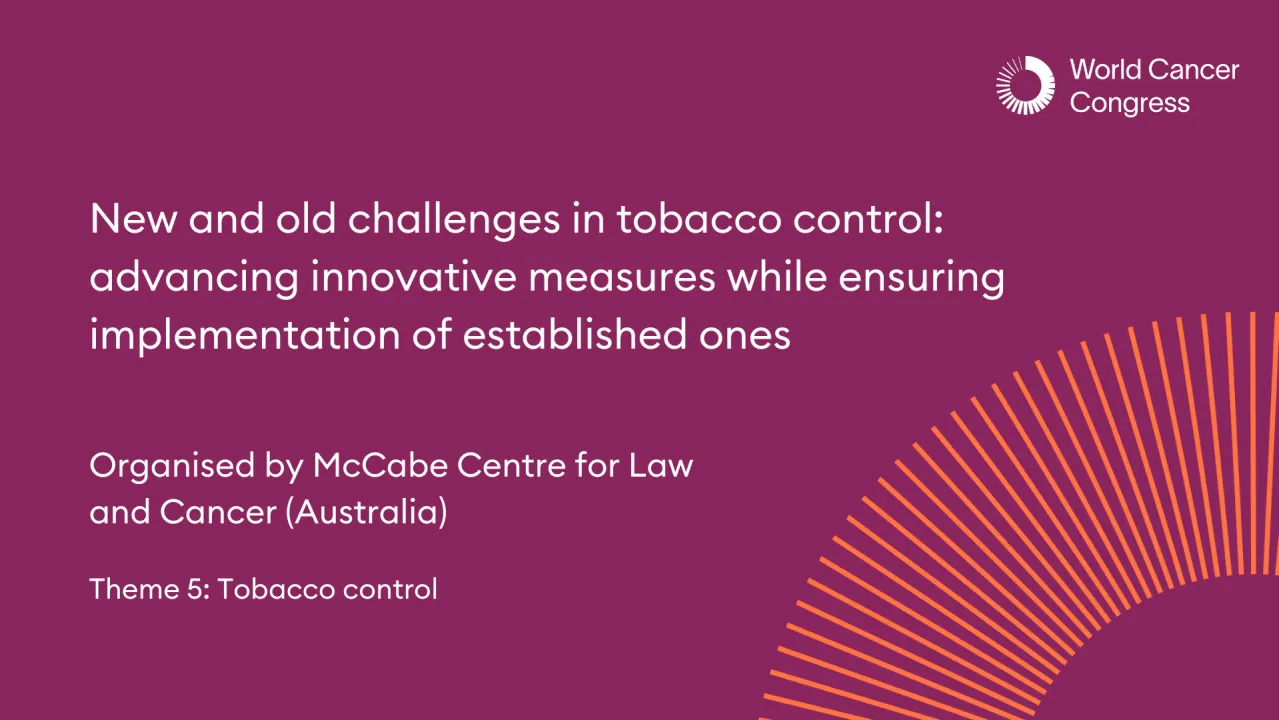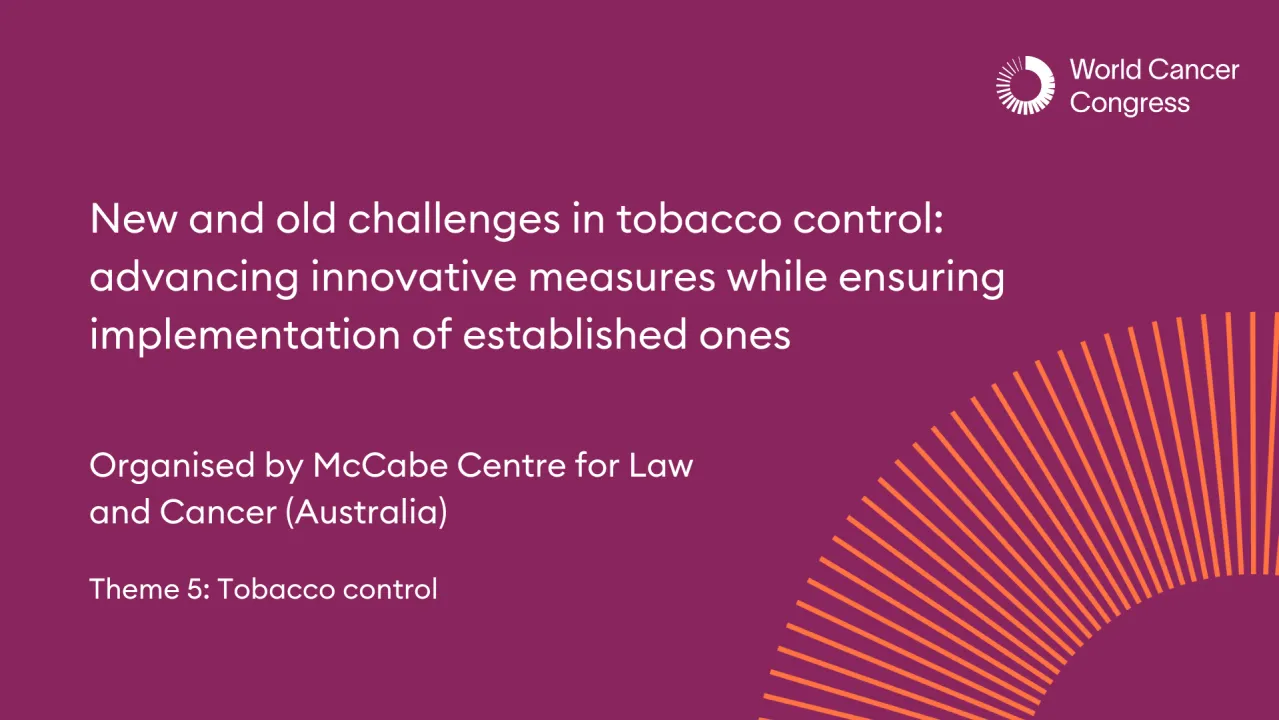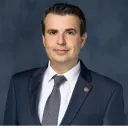

New and old challenges in tobacco control: advancing innovative measures while ensuring implementation of established ones
Information
Chaired by Suzanne Zhou, McCabe Centre for Law & Cancer (Australia), Mark Parascandola, National Cancer Institute - Shady Grove (United States)
Presentations:1. What can civil society organisations do to stop third parties from furthering the interests of the tobacco industry? - Marianne Hammer, Norwegian Cancer Society (Norway)
2. Malaysia’s efforts to pass tobacco free generation laws - Murallitharan Munisamy, National Cancer Society of Malaysia (Malaysia)
3. A Framework for Implementation of FCTC Article 5.3 - Lekan Ayo-Yusuf, University of Pretoria (South Africa)
4. Using implementation science to advance global tobacco control - Ramzi Salloum, University of Florida (United States)
Speakers


